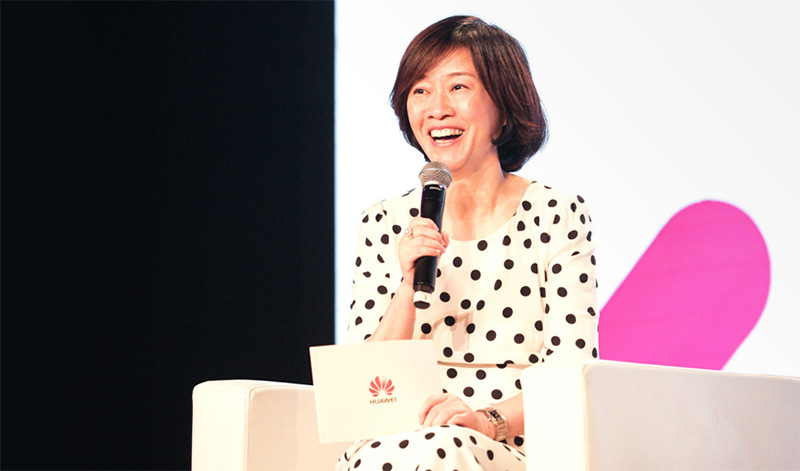Huawei's Chen Lifang Embraces the Digital Era at the Women4Tech Summit in Shanghai
[Shanghai, China, June 28, 2018] Huawei Senior Vice President Ms. Chen Lifang today attended the Women4Tech Summit at the Mobile World Congress Shanghai and delivered a keynote speech titled Embracing the Digital Era.
Ms. Chen stressed in her speech that the digital era will benefit women. When repetitive work will be done by machine and AI, women's unique strengths can be better unleashed and used. Education is a key initiative to close the digital divide.
The GSMA developed the Women4Tech Program to address gender diversity in the mobile industry. It is designed to increase female leadership in the digital era and supports the UN's Sustainable Development Goal 5: To achieve gender equality and empower all women and girls.

Content of the keynote speech:
Someone asked me, how could I work in the communications industry for 26 years straight as a woman? What is the secret to my success?
I think there are two parts to this answer. One is the personal drive that comes from within. After graduating from college, I chose to leave my hometown and come to Shenzhen alone for work, because I wanted to be independent from my parents. My career has brought me greater material and spiritual satisfaction and rewards. As I am seeing more of the world and experiencing more things, my horizons are broader and I have a natural sense of where I am heading. I feel a stronger internal push to go further and aim higher.
The other factor, I think, is that women need to find a platform that suits them. As I just said, the driving force within me is what constantly pushes me forward. And, I am lucky to have found a good platform and a good boss. I am also lucky to have found a good husband. My 20 plus years at Huawei definitely have had highs and lows, like an M curve. The value of a good platform is most evident when I hit rock bottom – the lowest point on the M curve. My company has helped me through these times. Of course, I also had to work hard to rise again.
In the past, value creation relied heavily on physical labor. I have to admit that, compared to men, women were at a disadvantage in this respect. However, in a digital world, everything will be different. A diversified world will offer women more opportunities. Most kinds of repetitive work will be done by AI. AI will save time and boost productivity.
The intelligent world will benefit women. In 2013, a study by the University of Pennsylvania found that men have stronger connections between the front and back regions of their brains. However, women's brains are highly connected across the left and right hemispheres. This difference may explain why men are better at focusing on one single task, whereas women are better at multitasking. Women also outperform men on communication and coordination tasks, which help teams work better together.
Therefore, people with charisma will have better chance to stand out in the digital world. And women will have more opportunities to leverage their unique strengths.
Digital technologies are the key to entering the intelligent world. However, we need to realize that there is a digital divide not only between countries, but also between genders. On average, women have less access to ICT technologies than men do.
In the digital world, we do not want to see women who were just freed from disadvantages of a labor-intensive system to be caught again in the digital divide.
Education is the one of the most important solutions to this issue. No matter through college education or social training programs, we need to offer women more opportunities to learn about and participate in the industry.
In 2008, Huawei launched the Seeds for the Future program. This program aims to help develop local ICT talent. As of the end of last year, a total of over 30,000 students from 350 universities in 108 countries had benefited from this program. We are also pleased to see more and more female faces in this program. Take the UK as an example. Four years ago, there were no female students in the program. However, last year, female accounted for 48% of all participants from the UK.
In 2013, we started Huawei ICT Academy. By the end of last year, over 11,000 female students had participated in the program.
We also delivered training for women in remote areas to help them master ICT skills. For instance, last year, Huawei joined forces with the Bangladesh authority as well as a local operator to start the Digital Training Bus Project. The project will last three years, running six buses with training facilities and trainers. The buses are now traveling to different remote areas around the country. The tailored courses are helping local women learn to access the Internet, use e-banks, and master other basic ICT skills.
As we say in China, "Women hold up half the sky." I believe a digital world will give women opportunities to better unleash their potential and creativity. I would like to join hands with everyone present here today to create a more open, equal, and inclusive tomorrow.



